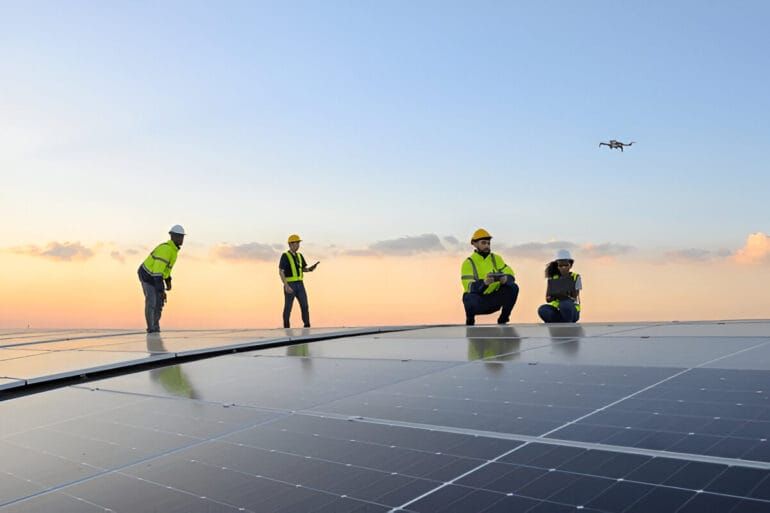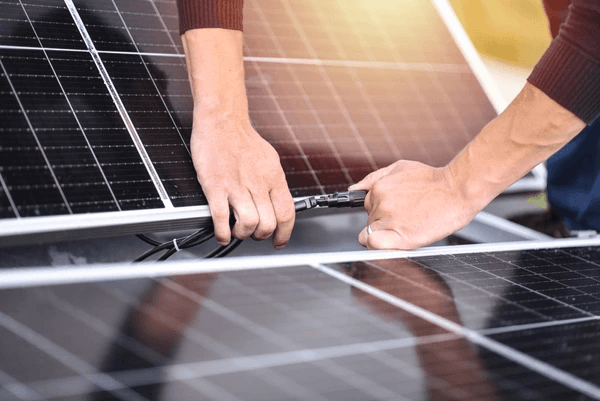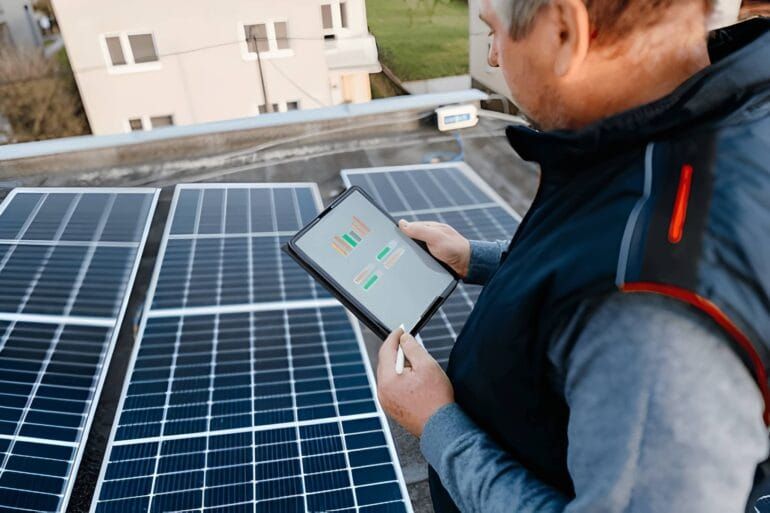Solar power is becoming increasingly popular with Perth, Western Australia residents and businesses. Plenty of sunlight and proximity to high electricity costs make an investment in solar energy a sensible and eco-friendly decision. However, one of the questions most asked is, “What does cost of solar panels Perth is?” The article below provides an in-depth analysis of solar panels’ cost, price determinants, and long-term savings on energy from the sun.
Understanding Solar Panels Perth Cost
The cost of solar panels installed on a home is subject to a variety of factors including system size, brand, installation fee, and government incentives. Currently, as of 2023, the average 6.6kW solar system, the most installed system in Perth, ranges from $6,000 to $8,500 following government rebates.
Why Solar Energy is Increasingly Popular in Perth
Perth enjoys 8 hours of sun a day, on average, so it ranks high among solar-power-friendly Australian cities. More homeowners and commercial ventures are increasingly going solar with higher electricity bills so that their utility bills drop with reduced dependency on traditional forms of power. Solar panel costs Perth has also been coming down year after year with improvement in technology as well as government incentives, which make solar energy a feasible and economical investment.
Factors Influencing Solar Panel System Cost in Perth
There are various elements that influence the total cost of solar panels Perth installation. When making a knowledgeable choice about the purchase of solar energy systems, homeowners should keep these factors in mind. A detailed explanation of the notable factors that lead to the price of the solar panel system follows below:
1. System Size
The size of the solar panel system plays an enormous role in determining the cost of solar panels installed on a residential house. The bigger systems generate more electricity, implying greater energy savings over the long term, but they are more costly in the short term.
- Small Systems (3kW – 5kW): These systems are typically suited for small families with minimal energy consumption. They are cheaper but will not cover all electricity needs.
- Medium Systems (6kW – 10kW): The most sought after by Perth residents, these systems provide a balance between cost and power output.
- Large Systems (10kW and greater): Ideal for larger homes or businesses consuming more power. Although expensive, they generate sufficient electricity to drastically reduce grid consumption and even qualify to sell back unused electricity to power companies.
Impact on Cost: Additional panels, inverters, and work are required for large systems, increasing the household cost of solar panels. They pay more in the short run, however.
2. Brand & Quality Panel
Not all solar panels are created equal. Solar electric panel cost varies based on panel quality and brand.
- High-End Panels: SunPower, LG, and REC are a few of the brands offering high-efficiency panels with longer warranties (25+ years). They operate more efficiently, even in low light, but at a higher cost.
- Mid-Range Panels: Brands such as Canadian Solar and Trina Solar offer a mix of price and performance and are thus homebuyers’ favorites.
- Budget Panels: Less expensive, unknown brands might cost less but can be less durable and less efficient in the long term.
Impact on Cost: More-quality panels raise the cost of a solar panel but provide more longevity and energy, which translates into more savings over the long term.
3. Installation Costs
Professional installation is a critical component of solar panel installation, and the cost of a solar panel system depends upon the level of difficulty of the installation.
- Routine Installations: Typically cost from $1,000 – $2,000 for an average residential system.
- Complicated Installations: When the roof is steeply pitched, has several levels, or requires supplementary mounting equipment, the installation price might be increased.
Impact on Price: The work and technical expertise are necessary to ensure safe and efficient installation and affect the price of solar panels. The choice of an experienced installer assures long-term reliability of the system.
4. Government Rebates & Incentives
One of the most significant cost-cutting benefits of solar panel installation in Perth is access to government rebates.
- Small-scale Technology Certificates (STCs): This national stimulus scheme lowers the upfront cost of solar panels on a residence through a discount upon purchase. STCs are calculated according to system size and geographical location.
- Feed-in Tariffs (FiTs): Some energy companies compensate for electricity fed back into the grid from surplus supplies, providing a secondary financial incentive.
Impact on Cost: The incentives can significantly lower the cost of solar panels for a house, making it less expensive.
5. Roof Type & Condition
The type and condition of a house’s roof can potentially impact the cost of a solar panel system.
- Flat Roofs: Tilt frames may be required to tilt panels for optimal output, incurring additional cost.
- Tile Roofs: Not as strong as metal roofs, they require more caution in installation, thus more labor cost.
- Shaded Roofs: Where there is shading by trees or some other blockage of sunlight, one may need other components like microinverters to guarantee maximization of electricity generation.
Influence on Cost: Roofing alteration and ease of access issues may make the cost of solar panels higher.
6. Battery Storage Choice
Certain residents choose to install battery storage into their solar panel system in order to store energy for later usage.
- Advantages of Battery Storage:
- Provides independence from the grid by reducing its reliance on the grid.
- Allows nighttime power consumption or at times of electricity outage.
- Increases long-term savings by enabling maximum use of self-produced electricity.
- Cost of Batteries: An advanced solar battery (e.g., Tesla Powerwall or LG Chem) will cost anywhere from $5,000 – $15,000 depending on capacity.
Impact on Cost: Although a battery increases the cost of a solar panel system, it is highly advantageous in terms of lower electricity bills and improved energy security.
Solar Panel System Cost Breakdown in Perth

Having knowledge of different system sizes and prices can help homeowners make an informed choice when buying solar power.
Small Solar Systems (3kW – 5kW)
- Suitable for apartments or small houses with low power consumption.
- Cost: $4,500 – $7,000.
- Savings: Up to $1,000 on electricity bills annually.
- Payback period: 4-6 years.
Standard Residential Systems (6.6kW)
Most widely used size for residential homes.
- Cost: $6,000 – $8,500.
- Savings: Up to $1,500 annually.
- Payback period: 3-5 years.
Large Systems (10kW – 13kW)
Best suited for big houses or heavy energy users.
- Cost: $9,000 – $13,000.
- Savings: $2,500 a year.
- Payback period: 4-6 years.
Commercial Systems (15kW – 100kW)
Companies can save heavily on electricity charges.
- Cost: $15,000 – $100,000.
- Savings: $3,000+ per year.
Payback period: 5-7 years.
Are Solar Panels Worth the Investment?
Solar energy is a low-cost investment on the basis of long-term savings on costs and government rebates irrespective of the cost of solar electric panels. Why?
- Saves Electricity Bills: A correctly sized system will save up to 90% on electricity bills.
- Government Rebate: STCs reduce the upfront cost, and the Renewable Energy Buyback Scheme (REBS) provides credit for electricity supplied back to the grid.
- Return on Investment: Solar panels return in 3 to 5 years on average in Perth.
- Environmental Benefits: Solar power reduces the consumption of fossil fuels, which lowers greenhouse gas emissions.
- Increase in Property Value: Houses with solar panels are more valuable as they are energy efficient, and thus it is a great investment for individuals who will sell their property in the future.
Choosing the Right Solar Provider
Choosing a reputable installer is crucial to achieving maximum efficiency from your solar system. Make sure your supplier:
- Provides high-quality solar panels with a minimum 10-year warranty.
- Has accredited and trained installation personnel.
- Provides extended backup support and maintenance.
- Provides financing packages to cover the expense of solar panels on a property.
Government Rebates and Incentives
One of the advantages of solar panel installation in Perth is government incentives and rebates. They are:
- Small-scale Technology Certificates (STCs): Homeowners are eligible to claim STCs as a rebate at the point of purchase on the cost of a solar panel system.
- Renewable Energy Buyback Scheme (REBS): Homeowners are able to sell back excess electricity to the grid, giving them additional savings.
- Interest-Free Loans and Financing: Some solar companies offer financing facilities that enable payment of the solar panel system in installments, thus making it affordable.
Savings on Electricity Bills and Long-Term Advantages
The main reason individuals install solar panels on their homes is to save electricity bills. The amount of savings depends on:
- The size of the system installed.
- The amount of sunshine received by the system.
- The electrical usage pattern of the household.
- Feed-in tariff rates of energy companies.
Having a solar panel system installed, home owners are able to save thousands of dollars over its lifetime with the added benefit of energy independence.
Conclusion
The cost of solar panels Perth depends on various factors, but subsidies from the government and energy saving make it a good investment. If you are a homeowner who wishes to save electricity bills or a business who wishes to save operational expenses, solar power is a long-term benefit.
Easy Solar provides clean and green solar panel installation, financing, and maintenance so that consumers can switch to clean and green energy with ease. Easy Solar’s professionals ensure customers get the ideal system designed to satisfy their energy needs such that they save money and become efficient.
Discover how Easy Solar can assist you in saving money on electricity by calling its professionals today and start embracing energy freedom!







